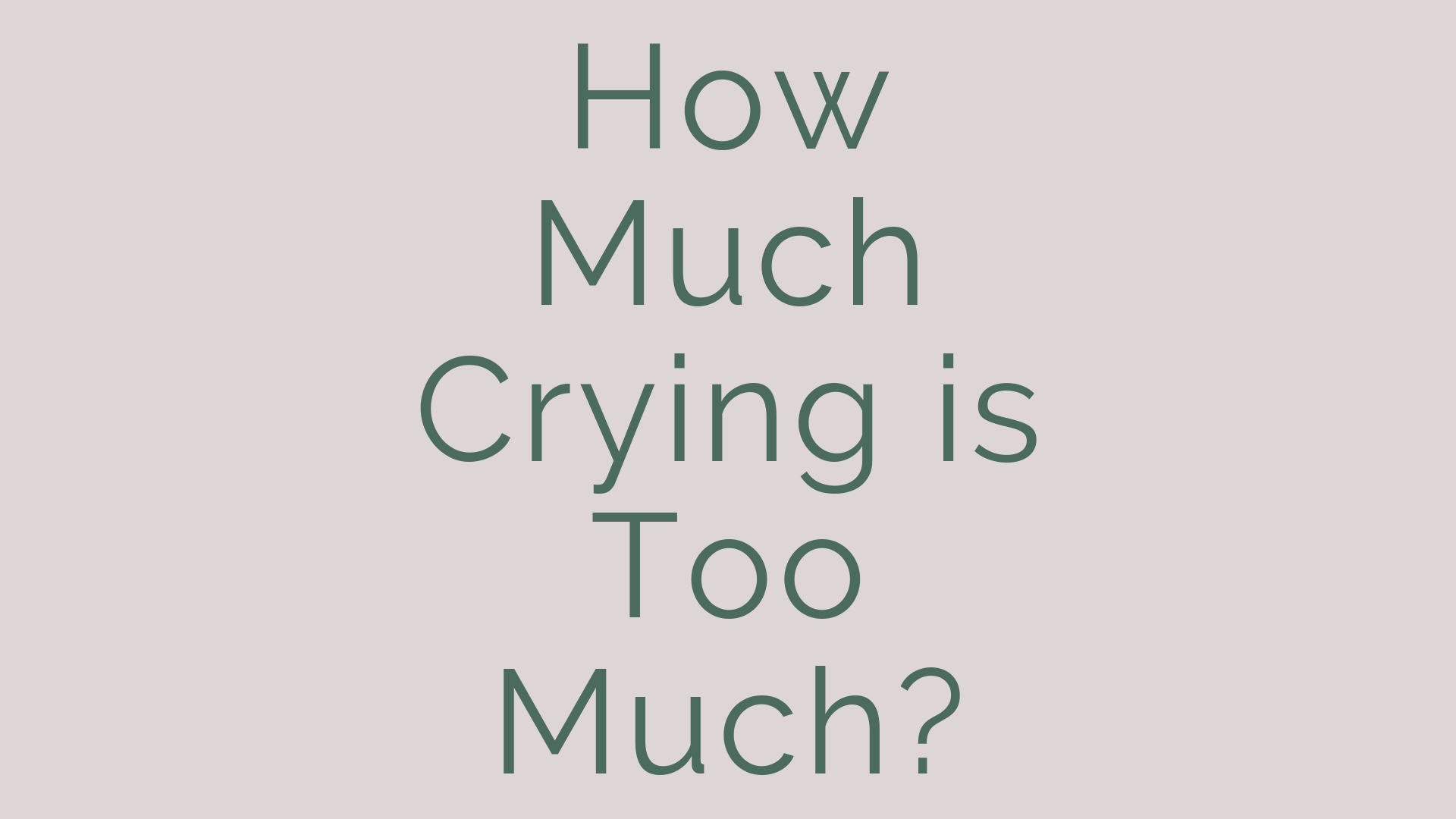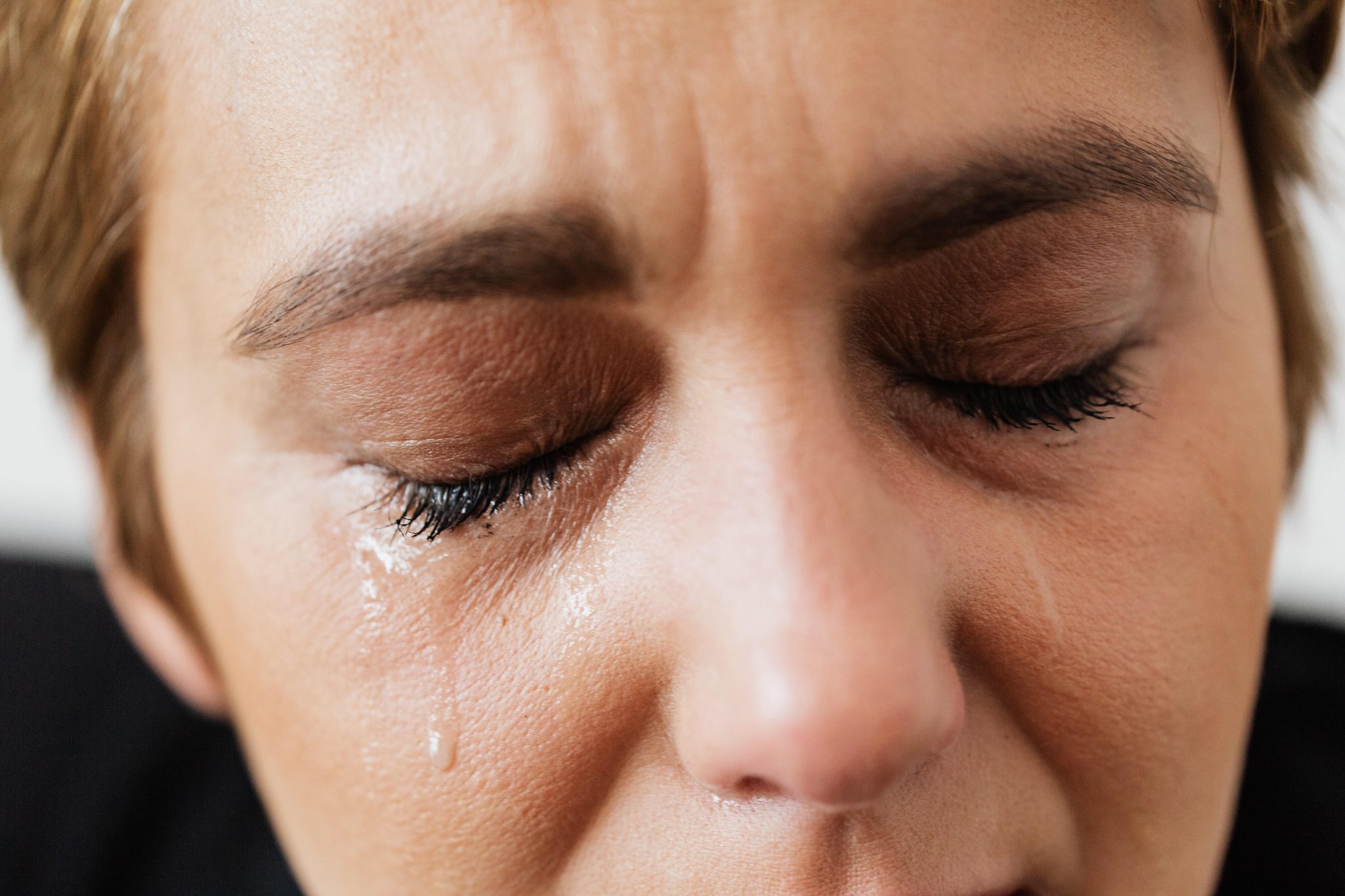Is Crying Too Much Bad? Unlocking The Emotional Truth Behind Tears
Is crying too much bad? That's the million-dollar question floating around in the minds of so many people today. You’ve probably found yourself in the middle of a sobfest and wondered if all those tears are doing more harm than good. Spoiler alert: crying isn’t the villain it’s made out to be. In fact, shedding a few (or a lot) of tears can actually be a lifesaver for your emotional well-being. But hey, let’s dive deeper into the science, psychology, and real-life situations behind this emotional powerhouse.
Let’s be real here—crying gets a bad rap. Society often tells us to "man up" or "keep it together," but guess what? Tears are a natural response to a wide range of emotions, and they serve an important purpose. Whether you're shedding tears of joy, sadness, or frustration, they all play a role in helping you process what’s going on inside your head and heart.
Now, before we get too deep into the emotional trenches, let’s clear the air. Crying too much isn’t necessarily bad, but there are times when it could signal something deeper. That’s why we’re here—to break down the good, the bad, and the ugly of crying and help you understand whether your tear sessions are healthy or something worth exploring further.
- Aja Wilson Husband Exploring The Life And Love Of A Wnba Star
- Kardashians And Jenner Family Tree An Indepth Exploration
Why Do We Cry? The Science Behind Tears
Alright, let’s talk science for a sec. Crying isn’t just some random thing we do when life gets overwhelming. It’s actually a biological process that helps us regulate our emotions and even protect our physical health. Tears come in three types: basal tears, reflex tears, and emotional tears. Basal tears keep our eyes lubricated, reflex tears flush out irritants like dust, and emotional tears? Well, they’re the stars of the show.
Emotional tears are packed with stress hormones like cortisol, which means crying can literally help you detoxify your body. Studies show that shedding emotional tears can lower stress levels, improve mood, and even boost your immune system. So the next time someone tells you to stop crying, just tell ‘em you’re doing your body a favor.
What Triggers Emotional Tears?
Now, let’s talk triggers. Emotional tears aren’t just for sad moments. You can cry when you’re happy, scared, angry, or even when you’re watching a sappy movie. Different emotions activate different parts of your brain, and crying is often the body’s way of releasing pent-up feelings. Think of it like a pressure valve that keeps things from exploding inside you.
- Exploring Young Damon The Iconic Character From The Vampire Diaries
- Randy Moss Wife The Woman Behind The Nfl Legend
- Happiness: Ever cried during a wedding or a big win? That’s your brain processing overwhelming joy.
- Sadness: Loss, disappointment, or loneliness can flood your emotional reservoir, leading to tears.
- Stress: High stress levels can trigger emotional tears as your body tries to find balance.
- Empathy: Watching someone else go through something tough can make you cry because you feel their pain.
Is Crying Too Much Bad? Separating Fact from Fiction
Here’s where the big question comes in: is crying too much bad for you? The short answer is no—not necessarily. But there’s a catch. While occasional crying is healthy, excessive crying can sometimes be a sign of something deeper going on, like depression, anxiety, or unresolved trauma. If you find yourself crying all the time without a clear reason, it might be worth talking to a mental health professional.
That being said, don’t let anyone shame you for crying. It’s a natural and necessary part of being human. In fact, research shows that people who cry regularly tend to have better emotional regulation and mental health outcomes than those who suppress their tears.
When Crying Becomes a Problem
But wait—how do you know when crying is crossing the line? Here are a few red flags to watch out for:
- Crying for no apparent reason
- Feeling out of control or overwhelmed by emotions
- Experiencing physical symptoms like headaches or fatigue
- Struggling to function in daily life
If any of these sound familiar, it might be time to reach out for support. Remember, asking for help is a sign of strength, not weakness.
The Benefits of Crying: Why Tears Are Good for You
Let’s flip the script and talk about the positives of crying. Believe it or not, tears can do wonders for your mental and physical health. Here are just a few benefits:
- Emotional Release: Crying helps you process and release pent-up emotions, preventing them from building up inside you.
- Stress Relief: Tears contain stress hormones, so shedding them can literally help you de-stress.
- Improved Mood: Studies show that crying can boost serotonin levels, leading to a happier, calmer state of mind.
- Connection: Tears can help you connect with others by showing vulnerability and fostering empathy.
So the next time you catch yourself tearing up, don’t fight it. Let those tears flow and reap the rewards.
How Crying Strengthens Relationships
And speaking of connection, crying can actually strengthen your relationships. When you’re open about your emotions, it encourages others to do the same. This creates a safe space for vulnerability and trust, which are the building blocks of any healthy relationship.
Think about it—when someone shares their tears with you, don’t you feel more connected to them? It’s like a silent language that says, “I trust you enough to show you my true self.” So don’t be afraid to let your guard down. Your relationships will thank you for it.
Myths About Crying: Debunking the Lies
Let’s bust some myths about crying while we’re at it. There are so many misconceptions out there, and it’s time to set the record straight.
- Myth #1: Crying is a sign of weakness. Fact: Crying is a sign of strength. It takes courage to face your emotions head-on.
- Myth #2: Only sad people cry. Fact: Tears can come from a wide range of emotions, including joy, anger, and frustration.
- Myth #3: Crying makes you look bad. Fact: Crying shows authenticity and vulnerability, which are qualities people admire.
So the next time you feel like crying, don’t hold back. You’re not alone, and you’re definitely not weak.
Why Suppressing Tears Can Be Harmful
On the flip side, suppressing your tears can actually do more harm than good. When you bottle up your emotions, they don’t just disappear. They fester inside you, leading to stress, anxiety, and even physical health problems. Studies show that people who suppress their emotions are more likely to experience depression, high blood pressure, and weakened immune systems.
So instead of pushing those tears away, let them out. Your body and mind will thank you for it.
Cultural Views on Crying: How Different Societies See Tears
Let’s take a quick trip around the world to see how different cultures view crying. In some societies, crying is seen as a natural and accepted part of life. For example, in Japan, there’s even a practice called "kanashibari," where people intentionally watch sad movies to induce tears and release stress. On the other hand, in more stoic cultures, crying might be viewed as a sign of weakness or a lack of self-control.
But here’s the thing—tears are universal. Every human being, regardless of culture or background, has cried at some point in their life. So instead of judging or shaming others for their tears, let’s embrace them as a shared human experience.
Breaking Gender Stereotypes Around Crying
And while we’re on the topic of culture, let’s talk about gender stereotypes. For far too long, men have been told to “man up” and stop crying. But guess what? Men cry too, and it’s perfectly okay. In fact, research shows that men who cry are often seen as more authentic and relatable.
So whether you’re a guy or a gal, don’t let societal expectations dictate how you express your emotions. Cry if you need to—it’s good for you.
How to Manage Excessive Crying: Tips and Strategies
Now that we’ve talked about the good and the bad of crying, let’s focus on how to manage excessive crying if it’s becoming a problem. Here are a few tips to help you take control of your emotions:
- Identify Triggers: Figure out what’s causing your tears and work on addressing those underlying issues.
- Practice Mindfulness: Techniques like deep breathing, meditation, and journaling can help you process emotions in a healthier way.
- Seek Support: Don’t be afraid to talk to friends, family, or a therapist about what you’re going through.
- Engage in Physical Activity: Exercise is a great way to release pent-up emotions and boost your mood.
Remember, managing your emotions is a journey, not a destination. Be patient with yourself and celebrate every small victory along the way.
When to Seek Professional Help
And finally, let’s talk about when it’s time to seek professional help. If you’re struggling with excessive crying and it’s affecting your daily life, don’t hesitate to reach out to a therapist or counselor. They can help you explore the root causes of your tears and provide strategies for coping with them.
There’s no shame in asking for help. In fact, it’s one of the bravest things you can do for yourself.
Conclusion: Embrace Your Tears, Embrace Yourself
In conclusion, crying isn’t something to be ashamed of. It’s a natural, healthy, and necessary part of being human. While excessive crying can sometimes signal deeper issues, occasional tears are a sign of emotional intelligence and strength. So the next time you feel like crying, don’t fight it. Let those tears flow and embrace the healing power of emotions.
And hey, if this article resonated with you, don’t forget to share it with someone who might need to hear this message. Together, let’s break the stigma around crying and create a world where everyone feels safe to express their emotions.
Table of Contents:
- Why Do We Cry? The Science Behind Tears
- What Triggers Emotional Tears?
- Is Crying Too Much Bad? Separating Fact from Fiction
- When Crying Becomes a Problem
- The Benefits of Crying: Why Tears Are Good for You
- How Crying Strengthens Relationships
- Myths About Crying: Debunking the Lies
- Why Suppressing Tears Can Be Harmful
- Cultural Views on Crying: How Different Societies See Tears
- Breaking Gender Stereotypes Around Crying
- How to Manage Excessive Crying: Tips and Strategies
- When to Seek Professional Help



Detail Author:
- Name : Alva Kutch Sr.
- Username : carlo.haag
- Email : kenna64@osinski.com
- Birthdate : 1994-12-28
- Address : 8077 Beier Villages Port Nyahbury, UT 95530-7231
- Phone : 463.386.8818
- Company : Miller, Pfeffer and Ferry
- Job : Dredge Operator
- Bio : Consectetur qui esse voluptatem iure. Qui natus aliquam dolores quod. Cumque ad velit qui corporis pariatur. Sed aut illum officiis quo.
Socials
instagram:
- url : https://instagram.com/macey_frami
- username : macey_frami
- bio : Molestias magnam ad commodi omnis. Magni qui omnis corrupti saepe.
- followers : 1671
- following : 404
linkedin:
- url : https://linkedin.com/in/framim
- username : framim
- bio : Id est tenetur quae corrupti.
- followers : 4477
- following : 1076
tiktok:
- url : https://tiktok.com/@macey_frami
- username : macey_frami
- bio : Ipsa incidunt a expedita dolorem nihil consequuntur at odit.
- followers : 2676
- following : 2727
facebook:
- url : https://facebook.com/maceyframi
- username : maceyframi
- bio : Recusandae laboriosam mollitia omnis et ex.
- followers : 3575
- following : 2583
twitter:
- url : https://twitter.com/maceyframi
- username : maceyframi
- bio : Officia quis aut sint consectetur iusto. Quisquam perspiciatis minus minima placeat. Earum debitis itaque eos quia.
- followers : 5261
- following : 1933